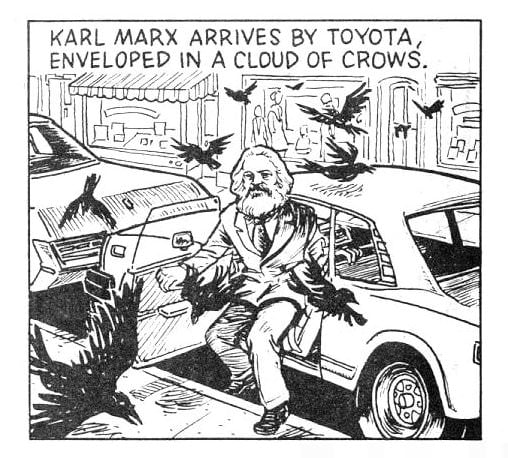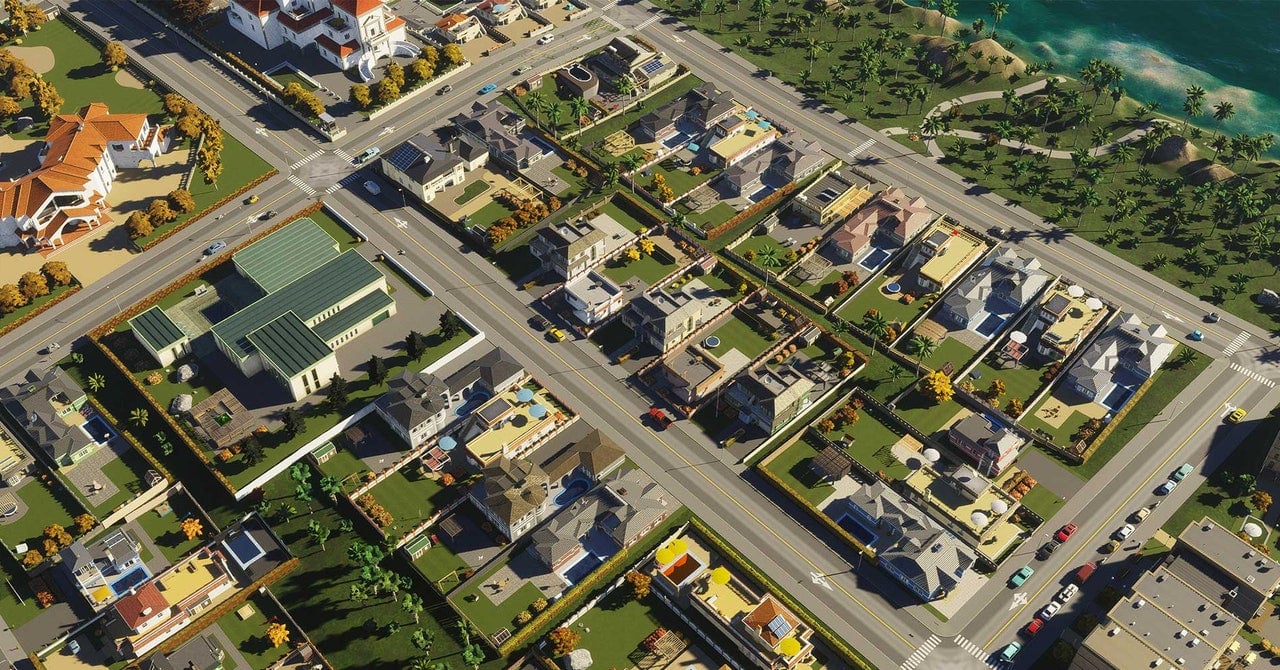- cross-posted to:
- [email protected]
- upliftingnews
- cross-posted to:
- [email protected]
- upliftingnews
Turned everything into a co-op and killed all the landlords?
Maybe we should try that outside of a video game, too.
Aren’t coops basically democratic condos? In Sweden we have “bostadsrätt” which are condos governed by a democratic resident association. They’re good for democratic control over housing, but they still require a mortgage and they’re still subject to market speculation. Some of the apartments can be rentals, but that still means you have a landlord, just that your landlord is your neighbors.
Having the city or the state as your landlord seems like it would be more ideal, or at least a balance of coops and public housing.
The major benefit is that a co-op is owned by the people who live there.
That’s still a MASSIVE improvement over outside ownership by someone who is just there to make money.
It’s a step in a better direction, if maybe not the ideal solution.
For the U.S. at least:
With condos, there’s a condo association that owns all the common areas. Then the association itself is owned by the owners of the units, and the management is elected by the owners.
With co-ops, the unit owners directly own the common areas in common, and the management is also elected by the owners.
Functionally speaking they’re very similar, and co-ops tend to exist in places where this legal structure predates the invention of homeowner associations (basically New York).
It’s called an HOA…you don’t want any part of that.
HOAs exist to maintain home resale value, and little else. They protect the “investment” of owning land and the homes on them. The laws around the practice are draconian and overreaching.
But theres no reason a superificially similar institution couldn’t be built for equitable reasons and then only be given reasonable amounts of power.
Good luck with that…we’ve tried it since the beginning of time…those institutions invariably turn into HOA like cluster fucks of bad management.
I don’t know what country your perspective is based on, but if it is the US, where HOA shittyness is the norm, then yeah, that makes sense.
But that’s not because the structure of a co-op can’t work or do good things. It’s because the culture, zoning laws and regulations over there are UTTERLY FUCKED which means real change is slow as hell to realize, since it involves changing course on decades of legislation, and convincing a LOT of minds to look at home-ownership differently.
HOAs are rare where I live, but we often have property management that oversees multiple units to take care of and fund common elements.
They’re not all perfect, but most aren’t nearly as bad as what I’ve heard about HOAs.
We have strata, or group ownership of the land and structure of a housing complex. Each owner owns what’s inside the walls of their apartment but the strata owns rye rest and is jointly owned by all owners. Each pays a fee to cover maintenance, upkeep and a sinking fund for major repairs. It works pretty well, for the most part.
However there is quite an administrative burden and many homeowners dont want the hassle of doing the admin so the busybodies tend to do it and overstep their boundaries often. Many use an external company to manage it. The biggest company was just in the need today as it was fsvouring its own insurance product for all the buildings it manages. Conflict of interest for profit isn’t quite the joint ownership plan strata envisions.
Sounds similar to where I live. The busybodies can be annoying, and fraud (etc.) can be a problem. But I won’t let perfect be the enemy of good to my opinion.
Yes, definitely. But important to not have annidealised view of outcomes either. Realistic goals and expectations in real life as in gaming.
“First of all, we removed the virtual landlord so a building’s upkeep is now paid equally by all renters,” the developer posted in a blog on the game’s Steam page. “Second, we changed the way rent is calculated.” Now, Colossal Order says, it will be based on a household’s income: “Even if they currently don’t have enough money in their balance to pay rent, they won’t complain and will instead spend less money on resource consumption.”
There’s a difference between “we removed landlords and prices went down” and “we allowed anyone to pay as much as they can, especially if they’re poor, and somehow now the average rent is lower”.
Clickbait title, but lemmy swallows as usual, cuz it fits the narrative.

I looked up the rest because it piqued my interest. Black Cat City by Jay Kinney, published in 1980.



Wtf… There’s no narrative or throughline, it’s just like… if you distilled “unsettling” and put it on paper.
Well, successful art I guess, it made me feel things…
“Drinnen saßen stehend Leute, schweigend ins Gespräch vertieft”
There’s a whole bunch of such surrealist art, and while me being a rather lazy student for most things art history means I have no idea whether there’s a better name for it, or how connected the artists behind them are, I still tend to find them rather fascinating.
Also, I’m not saying that surrealist art must necessarily miss a narrative throughline, though it’s true here.
Only way to turn up to a party tbh…
I always liked Lennon better in that duo.
Marxism-Lennonism
I like how they always credit each other when they write their ideology.
I love Victoria 3 because it appeals to the male fantasty, making the rich pay taxes.
Do…do women not want the rich to pay taxes? In a game called Victoria, no less? (i’ve never played)
For clarity, my understanding is that landlords in the game basically live rent free. Some of the buildings spawn with low numbers of apartments, so if you had a building with two apartments, 1 would be a landlord and the other tenet would pay x2 the rent.
So effectively they’re changing from having local landlords to instead paying rent to a distant landlord.
That first system sounds accurate to life, and the second like property taxes.
Is CS2 an actually playable game yet? I remembered trying to play it on my 4090 and getting 60fps on a blank map, and scrolling was somehow jittery.
Part of me feels like it ended up similar to the situation Ark is in now where the player base is split. I’ve honestly not heard anything much about CS2 recently which is curious. It was a shame it was such a let down on release after how much love CS got.
That could mean that the already content players are still happy with their game, and the vocal haters don’t have enough to hate on that doesn’t sound petty.
I say that as someone who has not played CS2 and plays 1 heavily modded… So the fuck do I know
Steam reviews are still mixed, both recent and overall.
That’s unfortunate.
I do enjoy builders and management games, so I was hoping it had improved.
I’ve got my fingers crossed that they pull a No Man’s Sky and actually strive to make a playable game, but the longer it takes, the less likely it seems.
Paradox in infamous for releasing unfinished games, in recent years.
Yeah fps is fine in game but simulation speed is terrible. Your game sim speed will grind to a crawl once you place a bit of high density.
Games got custom maps and assets and is building up a range of great mods.
Cities: Skylines II Found a Solution for High Rents: Get Rid of Landlords
For months, players have been complaining about the high rents in the city-building sim. This week, developer Colossal Order fixed the problem by doing something real cities can’t: removing landlords.
The rent is too damn high, even in video games. For months, players of Colossal Order’s 2023 city-building sim, Cities: Skylines II, have been battling with exorbitant housing costs. Subreddits filled with users frustrated that the cost of living was too high in their burgeoning metropolises and complained there was no way to fix it. This week, the developer finally announced a solution: tossing the game’s landlords to the curb.
“First of all, we removed the virtual landlord so a building’s upkeep is now paid equally by all renters,” the developer posted in a blog on the game’s Steam page. “Second, we changed the way rent is calculated.” Now, Colossal Order says, it will be based on a household’s income: “Even if they currently don’t have enough money in their balance to pay rent, they won’t complain and will instead spend less money on resource consumption.”
The rent problem in the city sim is almost a little too on the nose. Over the last few years real-world rents have skyrocketed—in some cases, rising faster than wages. In cities like New York, advocates and tenants alike are fighting against the fees making housing less and less affordable; in the UK, rent is almost 10 percent higher than it was a year ago. From Hawaii to Berlin the cost of living is exorbitant. Landlords aren’t always to blame, but for renters they’re often the easiest targets.
From this perspective, perhaps Cities’ simulator is too good. Prior to this week’s fix, players found themselves getting tripped up on some of the same problems government officials and city planners are facing. “For the love of god I can not fix high rent,” wrote one player in April. “Anything I do re-zone, de-zone, more jobs, less jobs, taxes high or low, wait time in game. Increased education, decreased education. City services does nothing. It seems anything I try does nothing.”
On the game’s subreddit, players have also criticised “how the game’s logic around ‘high rent’ contrasts reality,” with one player conceding that centralized locations with amenities will inevitably have higher land values. “But this game makes the assumption of a hyper-capitalist hellscape where all land is owned by speculative rent-seeking landlord classes who automatically make every effort to make people homeless over provisioning housing as it is needed,” the player continued. “In the real world, socialised housing can exist centrally.”
This is true. It exists in Vienna, which the New York Times last year dubbed “a renters’ utopia.” Except, in Vienna the landlord is the city itself (it owns about 220,000 apartments). In Cities: Skylines II, the devs just got rid of landlords completely.
The change in-game will have “a transition period as the simulation adapts to the changes,” and the developer “can’t make any guarantees” with how it will impact games with mods. Although the update aims to fix most of the problems at hand, that doesn’t mean players should never expect to see rent complaints again. When household incomes are too low to pay, tenants will be loud about it. “Only when their income is too low to be able to pay rent will they complain about ‘High Rent’ and look for cheaper housing or move out of the city.” Maybe it’s time players had a few in-game tenant groups of their own.
If you ever wanted to see an alleged IRL rent hellscape simulator take a look at this
RL patch when?
I’m not gonna say it’s a bad idea, I’m just gonna say I think I’ve seen this one
It’s a very good idea and much better than the stupidity of the current real estate market where all over the world entire generations cannot ever afford housing.
We have those IRL as well, condos and townhouses. Many people choose to go for those.
In real life, Qaddafi got rid of landlords in Libya. It resulted in a lot of housing problems.
Some people don’t have wealthy parents that can buy them a place to live outright. There is a need to have housing available that doesn’t require someone to have wealthy parents or get out a large loan. The ability to rent a place is important.
The real problem is the high cost to own a place to live which results in people having to rent when they’d rather own a home.

















